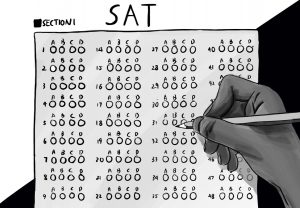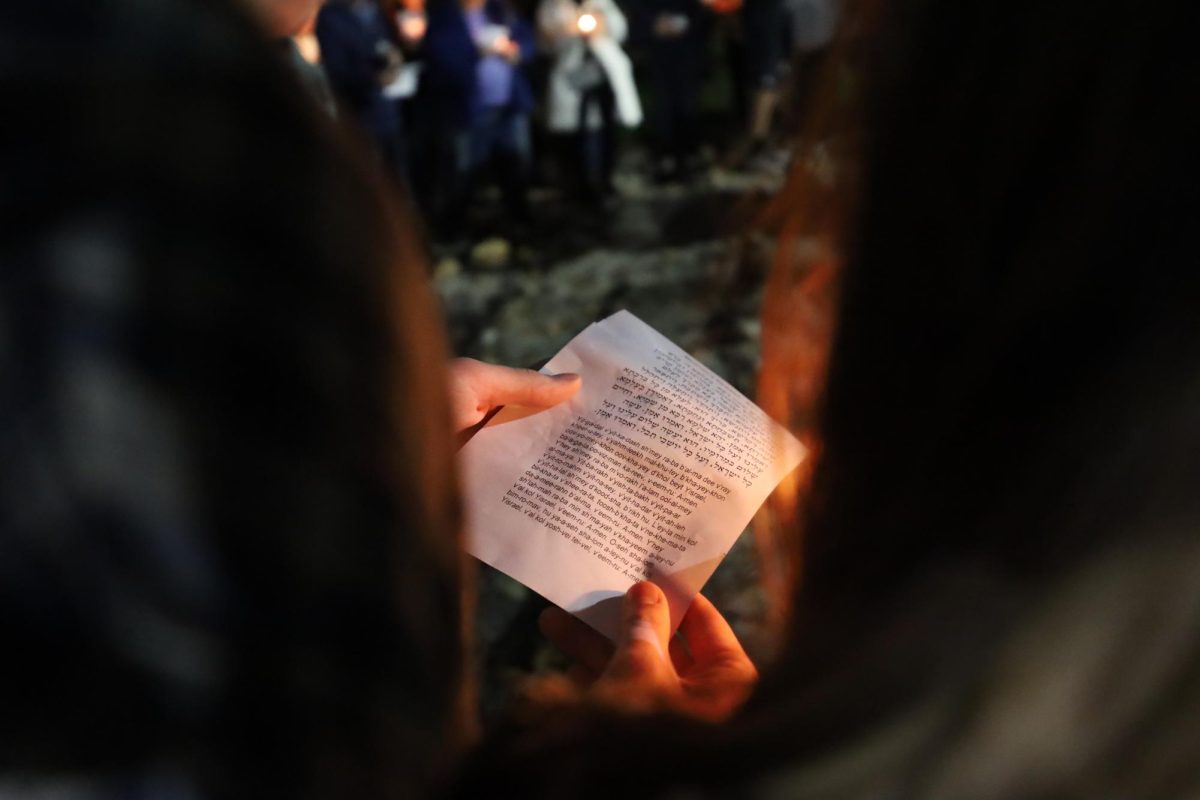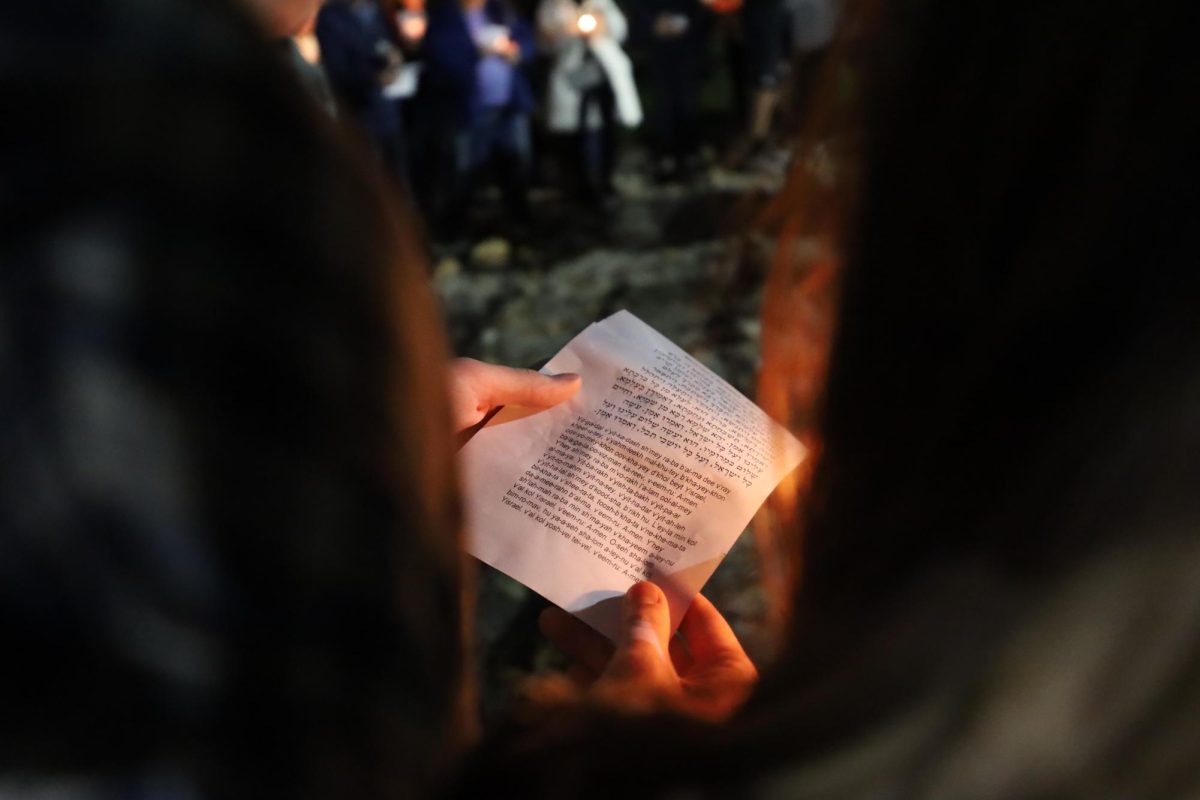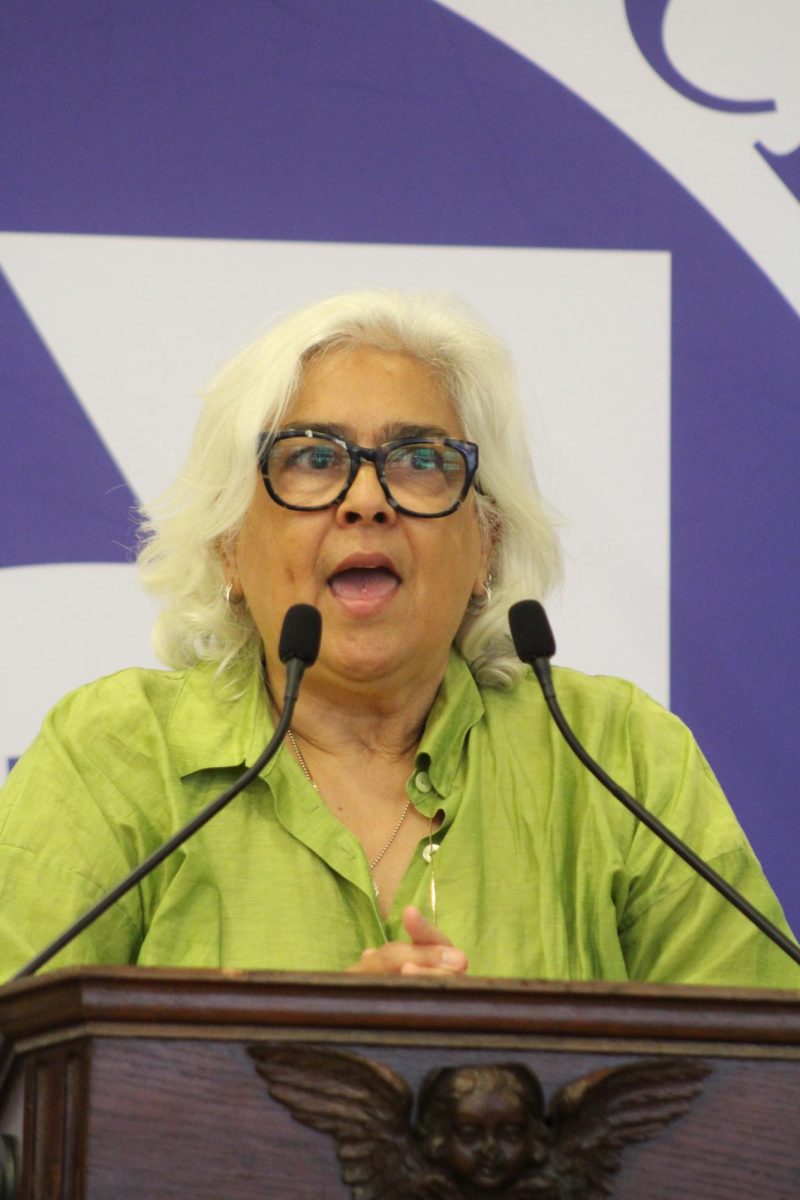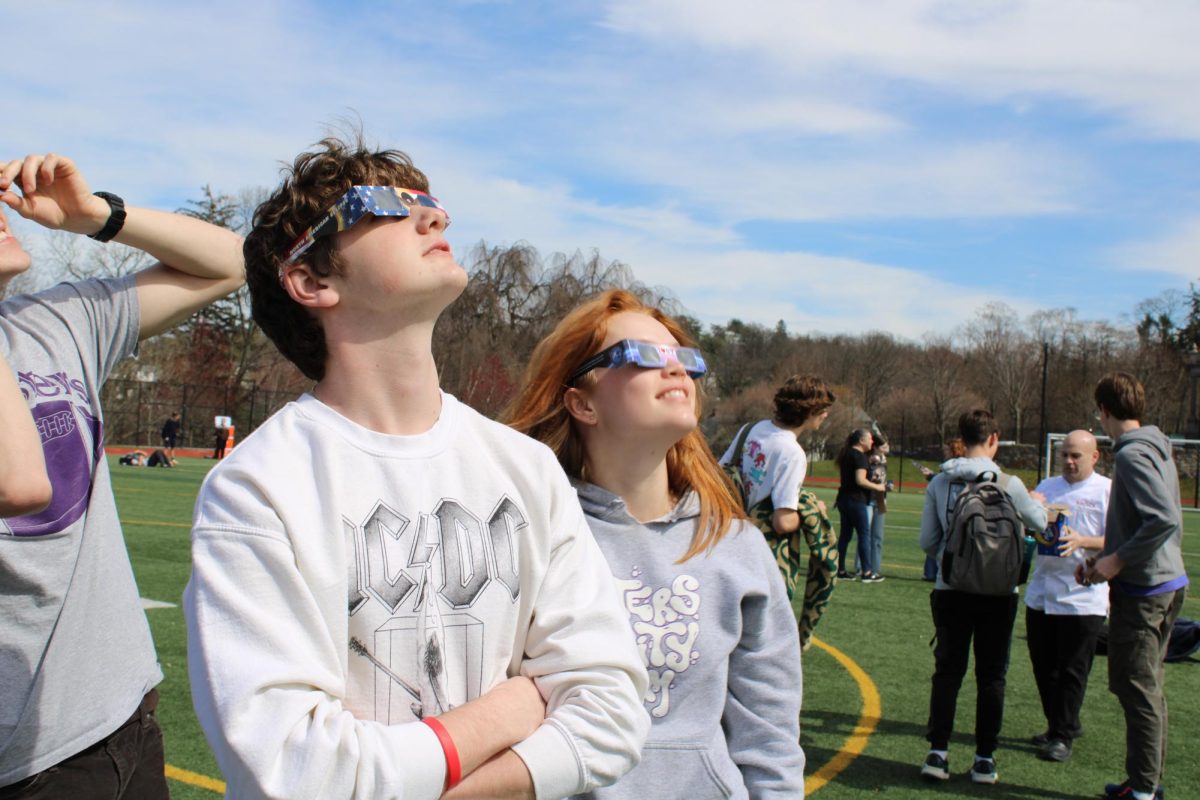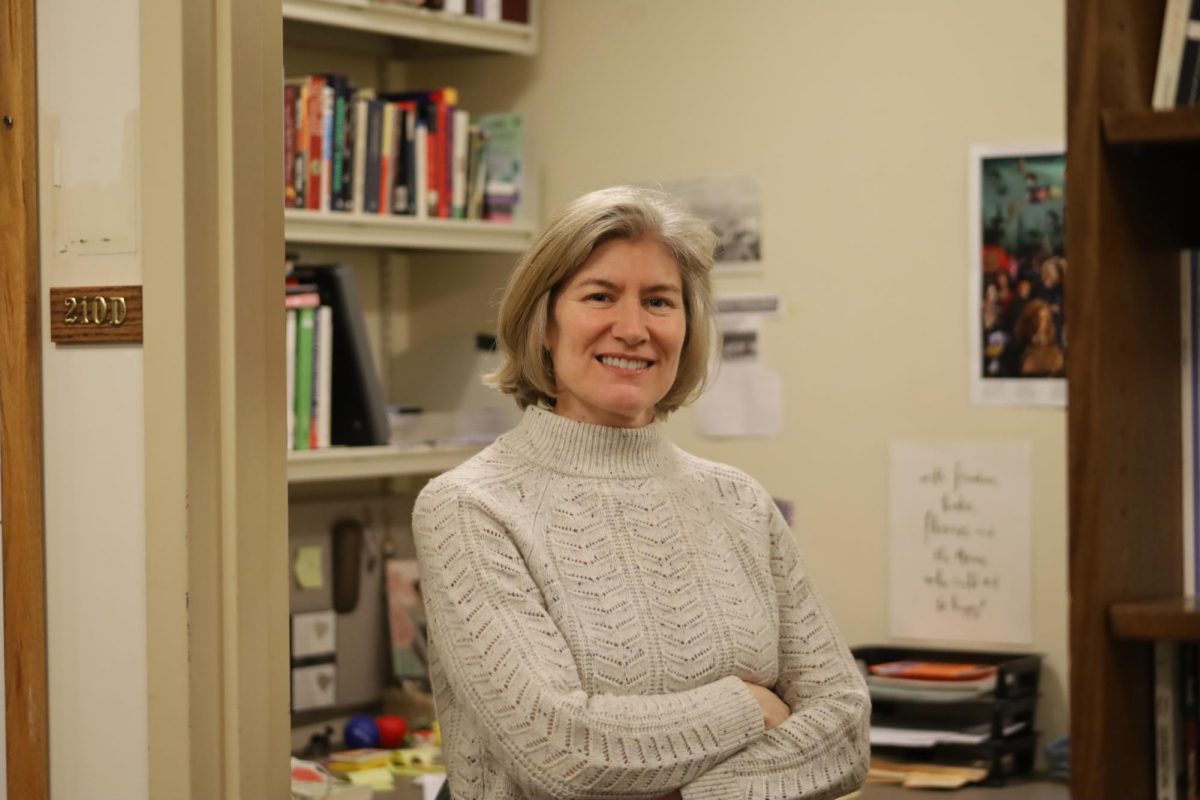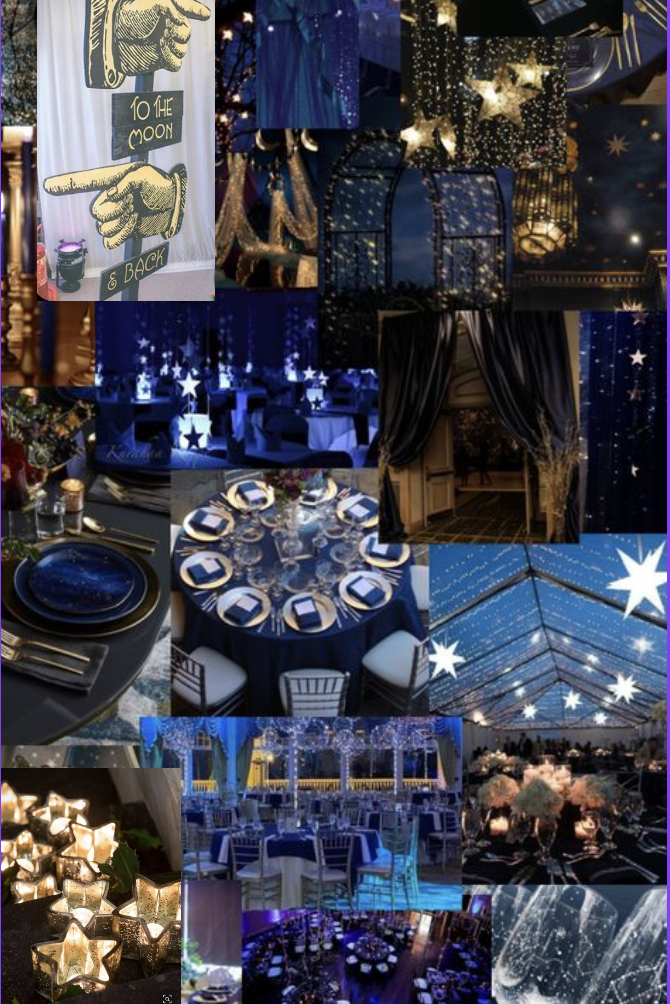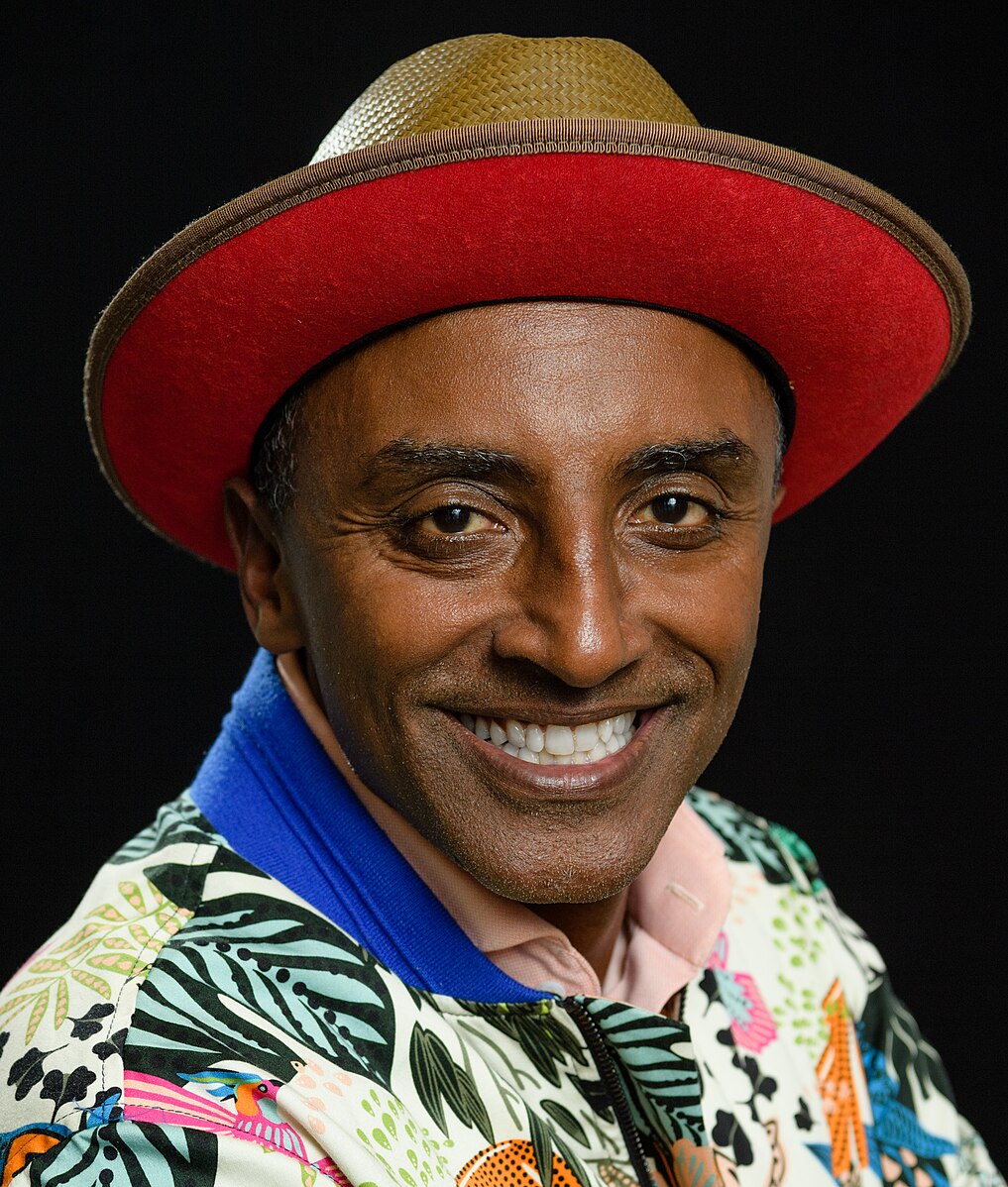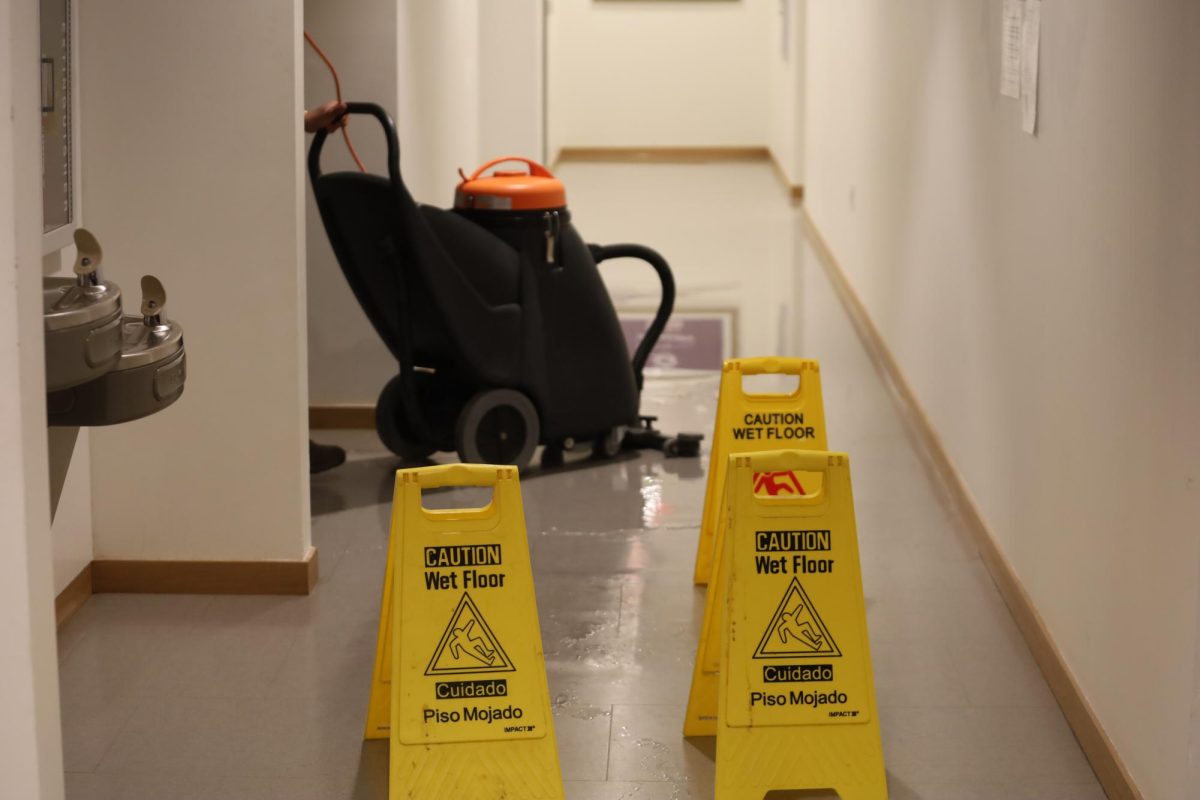One month after the Oct. 7 Hamas attack on Israel, Jewish Culture Club collaborated with the Center for Inclusive Excellence to host a candlelight vigil at the Estherwood Labyrinth in remembrance of all the lives lost on and since that attack. The vigil opened a dialogue for grieving community members, wherein multiple students, teachers, and parents, stepped forward to share their experience in the turmoil following the recent eruption of war in Gaza.
“The turnout was great. I expected maybe 20, 30 people [to attend]—we got over 50 that came here, which just really showed the support that the school is offering us,” Jesse Gelman ‘25, co-chair of Jewish Culture Club, said.
“I know that people were struggling to respond at the beginning, but a couple of people chimed in, especially Aron Tucker, and then the responses kept coming, and it was just amazing to see that.”
As one of the first speakers, Gelman opened with a poem from the famed Jewish writer and poet, Yehuda Amichai. “The poem is about the story of a man who collected pieces of gravestones of all the Jewish people in Israel who have died and who are struggling to be remembered,” he said.
Gelman had been a reader of Amichai and was reminded of his poetry in preparation for the vigil. “ I just remember that it was a really beautiful poem. So I went back and read it and honestly, in this new context, because I had read it years ago, in the context of this war, it hit me almost differently.”
Gelman reflected on why he felt it would be powerful to share this poem at the vigil. “And I was just thinking about how, well, I know, this trying time, a lot of us feel as though we’re almost powerless and it’s almost giving us a power—we have the power to remember.” — Jesse Gelman 25'
Many speakers at the vigil discussed their experience as Jewish community members in the days and weeks following the initial attack. While some discussed feelings of alienation from the larger Masters community as they came to terms with the horrors ensuing in the Middle East, others expressed a sense of solidarity within the Jewish community, and an ability to find solace in religion during times of intense conflict.
“You know, I was thinking about what to say all day, and I wasn’t really quite sure because I was trying to appeal to the adults, the teachers and the students. And then when I heard Jesse start speaking, and he was talking about a personal experience, I started reflecting on my own experiences,” Taylor Marlowe ‘25, another co-chair of Jewish Culture Club, said.
She recounted the story she told at the vigil: “Shahar [Marlowe’s family friend], who we all happened to be very good friends with—she’s now in the IDF. She told us to pay attention when there was something important being said, and when we visited the Western Wall, our tour guide took us to the back, and he was telling us this story about this man who came to Israel after the First Temple was destroyed, and he started crying looking at the ruins of the Temple. And the person he was with asked, ‘Why are you crying?’ And it was because of the fact that this was such a holy place, and this meant so much to my ancestors. It was this story about how everyone’s connected, and about the community aspect of Judaism.”
In the vigil’s final moments, community members united in prayer to recite the “Mourner’s Kaddish.” The prayer was led by English teacher, Masters parent, and Jewish Culture Club advisor, Miriam Emery. At the vigil, Emery explained that this is a prayer that anyone, Jewish or non-Jewish, can read. Furthermore, the prayer is meant to be spoken in a pair or in a group—as it was read at the vigil—as Emery described that mourning should never be experienced in solitude. She emphasized that the version (many versions exist) of the Kaddish distributed and read on Tuesday night closes with the idea that peace should be universal.















